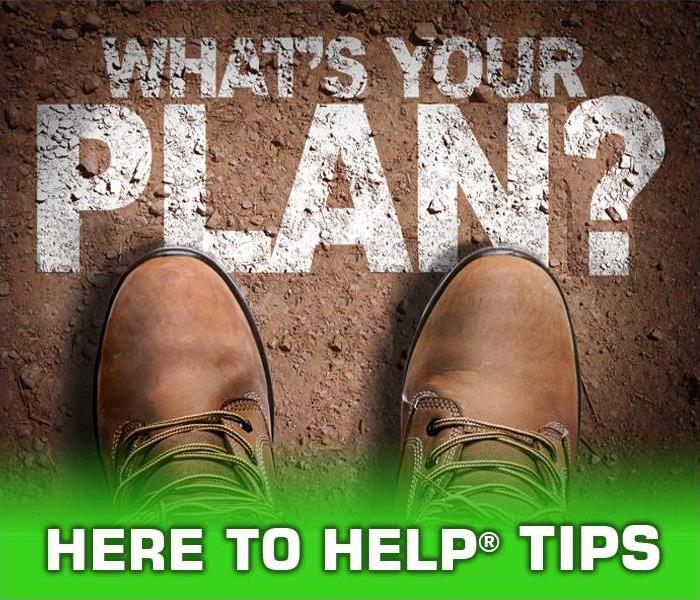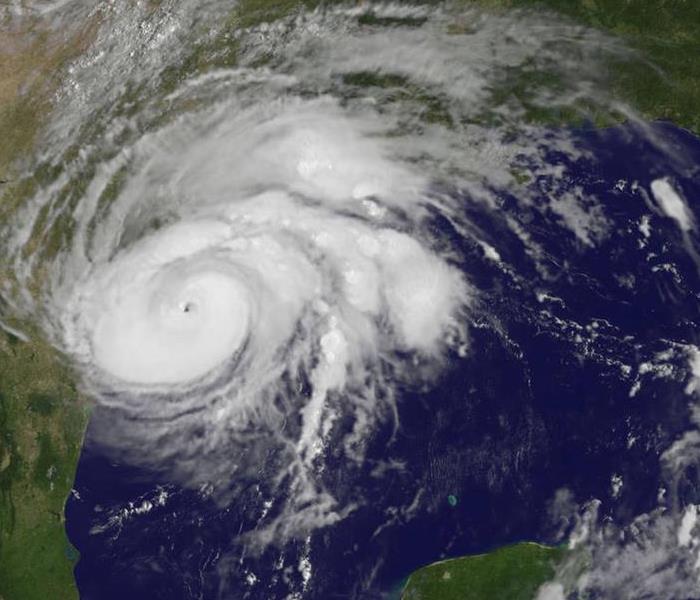Here to Help Tips: Because it’s important to us that you are prepared in case of an Emergency.
10/12/2018 (Permalink)
 Emergencies happen everyday; we have supported countless home and business owners and managers with water, fire and storm property damage.
Emergencies happen everyday; we have supported countless home and business owners and managers with water, fire and storm property damage.
September was National Preparedness Month; it helps remind everyone that taking little steps to get prepared now, can make a big difference when an Emergency happens.
We here at SERVPRO of Medford know that Emergencies happen everyday; we have supported countless home and business owners and managers with water, fire and storm property damage. We understand that your lives are busy, it can be overwhelming to add being prepared in case of an Emergency to your list, and getting started maybe the hardest part. We also know that being prepared can make a huge difference when faced with a disaster and can get your life back to normal more quickly afterwards. Doing just a few things each month can have a big impact if the worst happens to you or your community.
This Month’s Here to Help Tips, start with getting informed and communicating with your family, household and community about potential risks and what your plan will be in an emergency situation.
Step 1: Make a Plan
Start making an emergency plan with your family, friends and household by discussing the types of disasters that could strike and what to do at different times of the day. Discuss how to prepare and respond to emergencies that are most likely to happen where you live, learn, work, and play. Keep your emergency plan as simple as possible and use places that are very familiar and hard to forget. Identify responsibilities for each member of your household and plan to work together as a team.
Fill out a Family Emergency Plan and make sure each member has a copy on them at all times.
FEMA.gov has a printable resource to get you started.
Key Points for building your Emergency Plan this Month:
1. Choose at least two pre-planned places for your family to meet in case of an emergency. One should be right outside your home in case of a sudden emergency, such as a fire. The other should be outside of your neighborhood in case you cannot return home or are asked to evacuate.
2. Hold evacuation drills at home, practice getting out of the house quickly and drive your planned evacuation route. The more you practice, the more confident you will be if you really need to evacuate.
3. Communication is a key component to your safety; make sure you have an out-of-town contact that will help your household reconnect after an emergency. Store an “In Case of Emergency” contact in your phone, have regular conversations about whom to text or call if you need help and where to go during and after an emergency.
4. Create a personalized plan and supply kit for your specific daily needs and responsibilities, taking into consideration any additional friends or family that may be included in your emergency plan, such as elderly neighbors or grandparents. Some key factors to consider when creating a supply list are:
- Different ages within your household
- Medical and Dietary needs including medications
- Children
Step 2: Start a Disaster Supply Kit
While your family's Emergency preparedness supply kit and other essentials will be unique to you, there are a few basics that will help to prepare you for success, and get you started on the right track. Your kit should be organized and easily accessible, make sure your kit is easy to carry and contains these basics: water, medical supplies, medications, non-perishable foods, a battery- or hand-powered radio, a manual can opener, a flashlight, batteries, spare clothing items including socks, blankets, cash, tools including a wrench and pliers, local maps and your emergency plan, contact information, important personal and financial information, and a first-aid kit.
It’s also recommended that you have backpack kits for each individual and secondary kits in cars, school lockers and work locations in case you are separated during an emergency situation.
The point about Emergency Preparation is that you never know when or where a disaster could happen. It’s important to take steps now to help make sure you and your family will be prepared with needed supplies and essentials if a disaster strikes later. It’s our goal at SERVPRO of Medford to be here to help you restore your property after a disaster, but we also want to try and help you be prepared to face a disaster and to take steps to try and avoid one.
If you have experienced a property disaster and require some restoration help, give us a call we are experienced in getting your property restored, “Like it never even happened.”
Visit us again for more information about our Here to Help Tips, and for even more tips this month visit our Facebook page by clicking here.





 24/7 Emergency Service
24/7 Emergency Service
